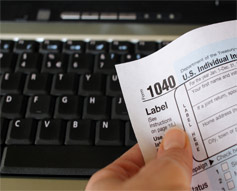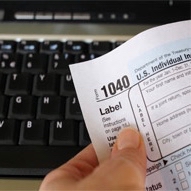Poor tax planning can have you paying more to Uncle Sam and keeping less in your wallet. Farmers who want to prepare for next year’s tax return can turn to the Farmer’s Tax Guide.
Available from most your local UGA Extension offices, the publication explains how the federal tax laws apply to farming. Farmers can use the guide to figure their tax contribution and complete their farm tax return. More tax specific information on any subject is available in specific IRS publications. Many of these free publications are referred to throughout the Farmer's Tax Guide.
One tip for farmers is to make note of things during the 2011 tax season that could have been done to reduce tax liability. Then, plan a tax strategy for this year that implements those findings. For example, if your taxable income is higher than expected toward the end of the year, go ahead and make purchases that you know you will need in the upcoming year to offset income. If taxable income is lower than expected, consider selling some stock or timber as your taxes would be lower than in a high-income year.
UGA Extension produces a farm record book that many farmers find helpful. Spaces are provided for recording farm receipts and expenses, capital transactions, inventories, credit accounts, net-worth statements, crop records and individual labor records.
For a copy of the Farmer’s Tax Guide, contact your local Extension office at 1-800-ASK-UGA1. The farm record book can be downloaded at www.caes.uga.edu/Publications/.




.jpg)


